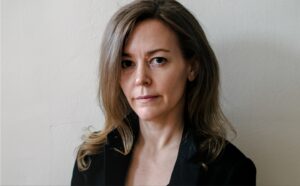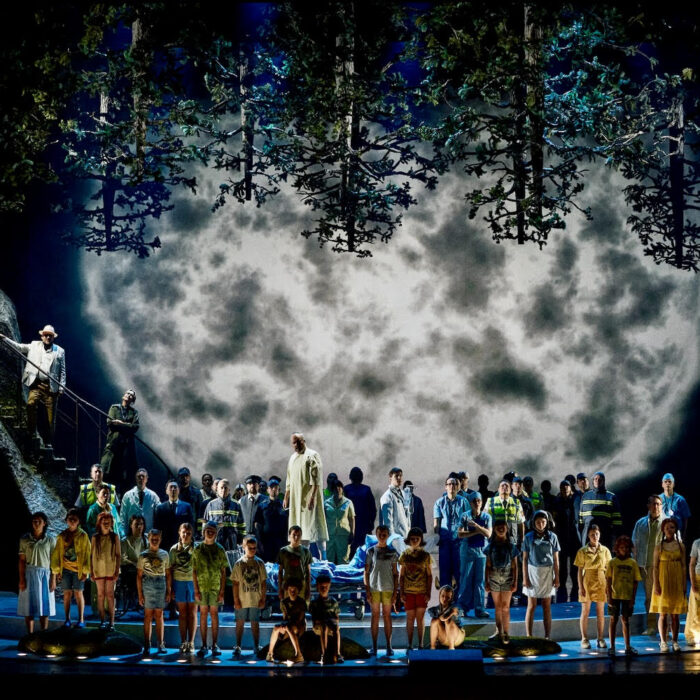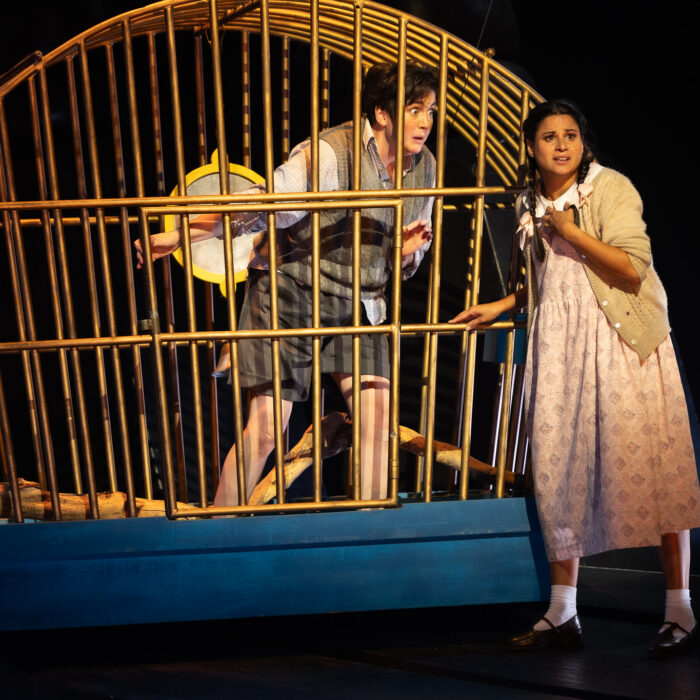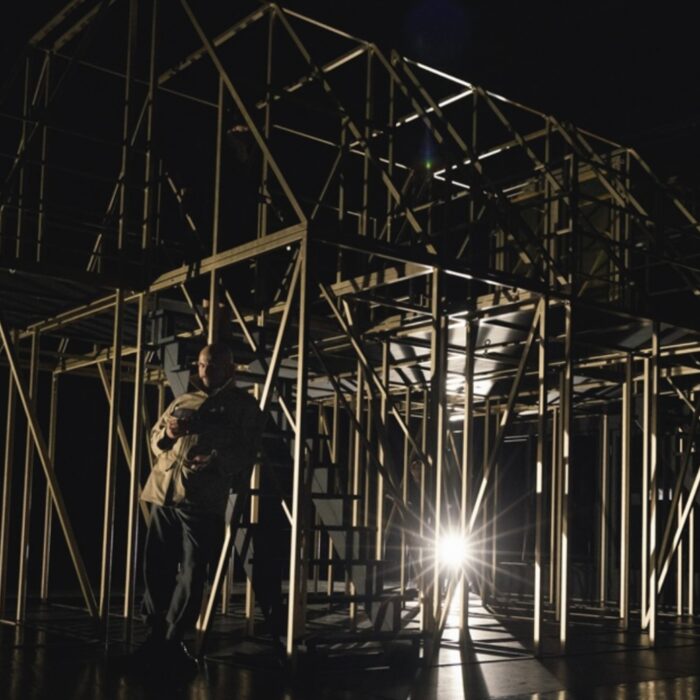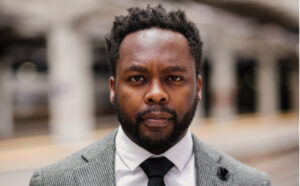
Lincoln Center 2023 Review: Grammy Award-Winning Baritone Will Liverman at Alice Tully Hall
Liverman’s ‘Dreams of a New Day: Songs by Black Composers’ Presented in Collaboration with The Metropolitan Opera for Lincoln Center’s ‘The Other Side of the Stars’ Series
By Jennifer PyronPhoto: Jaclyn Simpson
Grammy award-winning baritone Will Liverman performed a comprehensive collection of works by Black composers at Alice Tully Hall on February 15, 2023, alongside pianist Paul Sánchez, in an astounding breadth of numerous complexities.
The selected songs were from his Grammy-nominated album “Dreams of a New Day: Songs by Black Composers” and presented in collaboration with The Metropolitan Opera for Lincoln Center’s “The Other Side of the Stars” series. Will Liverman’s performance explored an extraordinary depth of emotional intelligence and expansive intuition through works that expressed a world of infinite hope, empowerment, and transcending awareness.
Reflections of the Soul
Richard Fariña’s “Birmingham Sunday,” a song written in 1965 to remember the bombing of the 16th Street Baptist Church on September 15, 1963, that killed four girls, Addie Mae Collins (14), Denise McNair (11), Carole Robertson (14) and Cynthia Wesley (14), and injured 22 others, was Liverman’s first selection. His arrangement of this song was intimate and inviting as he sang and played the piano. His voice was grounded, aligned, and full of life. “Birmingham Sunday” set a contemplative tone that extended further.
Paul Sánchez joined Liverman on stage at the piano for his following selections. The two performed a newly composed “I Dream a World” by Damien Sneed, with text by Langston Hughes from 1941. Sneed composed this piece in 2018 for baritone Justin Michael Austin’s Carnegie Hall Debut Recital as First Place Winner of the National Association of Negro Musicians (NANM) Vocal Competition. His composition allows the singer to bloom and blossom, especially in moments where Langston Hughes’s text becomes soulfully reflective.
Liverman spoke briefly before he performed this piece about his mission being to uplift the voices and compositions of BIPOC composers, creators, writers, and contributors to art songs that our history has failed. He dedicated his recital to the celebration of past, present, and future BIPOC voices he highlights on his album “Dreams of a New Day.” Listeners were seen actively reading and processing together. Langston Hughes’s text spoke volumes at this moment.
I Dream a World (poem by Langston Hughes)
I dream a world where man/No other man will scorn,/Where love will bless the earth/And peace its paths adorn/I dream a world where all/Will know sweet freedom’s way,/Where greed no longer saps the soul/Nor avarice blights our day./A world I dream where black or white,/Whatever race you be,/Will share the bounties of the earth/And every man is free,/Where wretchedness will hang its head/And joy, like a pearl,/Attends the needs of all mankind–/Of such I dream, my world!
The Power of Art Songs
Composer Harry T. Burleigh published “5 Songs of Laurence Hope” in 1915 with text by poet Adela Cory Nicholson. It is important to note that Nicholson published all of her works under the pseudonym Laurence Hope, and so this art song cycle is dedicated to her.
Will Liverman’s choice to include this cycle continued his active mission of examining the history of BIPOC works. His voice brought to life Adela Cory Nicholson’s text. His own unique and brilliant creative palette radiated hope as he fully embraced moments where his vocal range extended into an otherworldly dynamism. Liverman embodied his most powerful presence as his purpose. The audience was absolutely captivated.
“Riding To Town,” Liverman’s next choice, is a song by Thomas Kerr Jr. published in 1943 with poetry by Paul Laurence Dunbar. Paul Laurence Dunbar was an American poet, novelist, and short story writer who became one of the first BIPOC writers to establish international acclaim.
Thomas Kerr Jr.’s composition honors Dunbar’s natural dialect, and Liverman’s choice to include this piece celebrated Dunbar’s voice in the same way. In this, Liverman sang with playfulness, and Paul Sánchez’s piano playing felt buoyant and free. Together, they created an atmosphere that celebrated life’s simple pleasures. This was a beautiful moment shared.
Margaret Bonds’s “3 Dream Portraits” was published in 1959 with text by Langston Hughes. The three poems, ‘No.1 Minstrel Man,’ ‘No.2 Dream Variation,’ and ‘No.3 I, Too,’ are enriched by Bonds’s masterful compositions. Her work thoughtfully examines Hughes’s text and appreciates his gift of writing. Will Liverman’s eyes sparkled, especially as he performed this cycle. ‘No.3 I, Too’ left a lasting impression as Liverman’s profundity of expression proved to be his mastery. He sang with ardent awareness as the audience held onto Hughes’s every word.
I, too (poem by Langston Hughes)
I, too, sing America./I am the darker brother./They send me to eat in the kitchen/When company comes,/But I laugh,/And eat well,/And grow strong./Tomorrow,/I’ll be at the table/When company comes./Nobody’ll dare/Say to me,/“Eat in the kitchen,”/Then./Besides,/They’ll see how beautiful I am/And be ashamed–/I, too, am America.
Florence Price’s “Songs to the Dark Virgin” was published in 1941 with Langston Hughes’s text from his 1926 volume ‘The Weary Blues.’ All three stanzas of his poem are featured in this song, and Will Liverman’s performance felt deeply personal and transcendental. His voice was rich and exuberant. Paul Sánchez played the piano with the same enriched quality, and one might easily consider this to be a favorite of the night.
H. Leslie Adams’s ‘Nightsongs’ was next, and it was the perfect way to compliment Price’s work. ‘Prayer,’ ‘The Heart of a Woman,’ and ‘Sence You Went Away’ are only three songs from Adams’s six-song cycle, also referred to as ‘Six Afro-American Songs.’ Published in 1961, ‘Nightsongs’ features text by Langston Hughes, Georgia Douglas Johnson, Clarissa Scott Delany, James Weldon Johnson, and Leslie Morgan Collins.
Shawn E. Okpebholo’s ‘Two Black Churches’ was published in 2020 and is a reflection of two violent and historical events perpetrated at the hands of white supremacists in two black churches, the 16th Street Baptist Church in Birmingham, Alabama, and Mother Emanuel AME Church in Charleston, South Carolina.
The text is by Dudley Randall and Marcus Amaker. Liverman’s voice was triumphant and pure as he sang of the perspectives of the mother of one of the victims. Paul Sánchez’s performance was tender as he glided through the 1960s black gospel-styled composition. Both Liverman and Sánchez made this moment of the recital a musical breakthrough, especially when they took a long pause after song one. Shawn E. Okpedbholo’s composition expanded into creative genius.
Robert Owens’s ‘Mortal Storm’ was published in 1969 with text by Langston Hughes and includes songs ‘No. 1 A House in Taos,’ ‘No. 2 A Little Song,’ ‘No. 3 Jaime,’ ‘ No. 4 Faithful One,’ and ‘No. 5 Genius Child.’ Liverman’s vocal palette was dynamic and enlivened. His stamina really showed, especially at this point in the recital, to be that of a dedicated and healthy singer. His tone was pure and inspiring.
‘Good-night’ is an art song published in 2022 by Will Liverman and violinist Lady Jess featuring text by Paul Laurence Dunbar. This is part of a trilogy of songs preceded by ‘Golden Day,’ and will ultimately be part of ‘The Dunbar Psalm Book.’
Liverman and Lady Jess’s co-performance was balanced and transportive. ‘Good-night’ was a perfect conclusion to a beautifully complex and intelligent recital. Liverman’s ideas were original and thoughtfully presented with care and precision. His musicality was on another level, and his proclivity for hard work resonated with the core purpose of his art. Liverman radiated his most powerful presence throughout.
